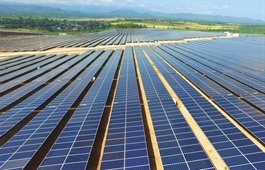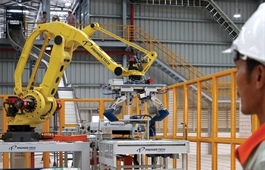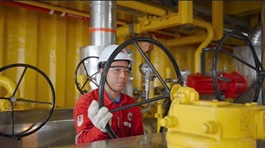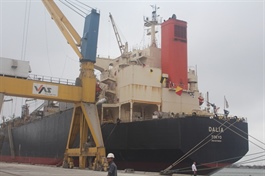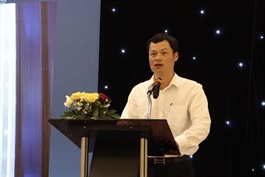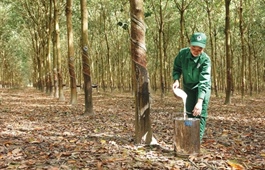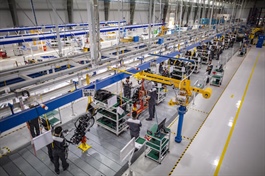Offshore wind promising, but implementation gaps remain
Offshore wind promising, but implementation gaps remain
Danish energy investors, known for their offshore wind capabilities, remain cautiously optimistic about Vietnam’s renewable ambitions. Danish Ambassador Nicolai Prytz talked with VIR’s Nguyen Thu about the pros and cons of Vietnam’s journey in this field, and calls for stronger regulatory clarity to unlock the full potential of bilateral cooperation.
Danish companies have a strong interest in offshore wind (OSW) development, but why are Danish companies still hesitating when it comes to pushing ahead in Vietnam?
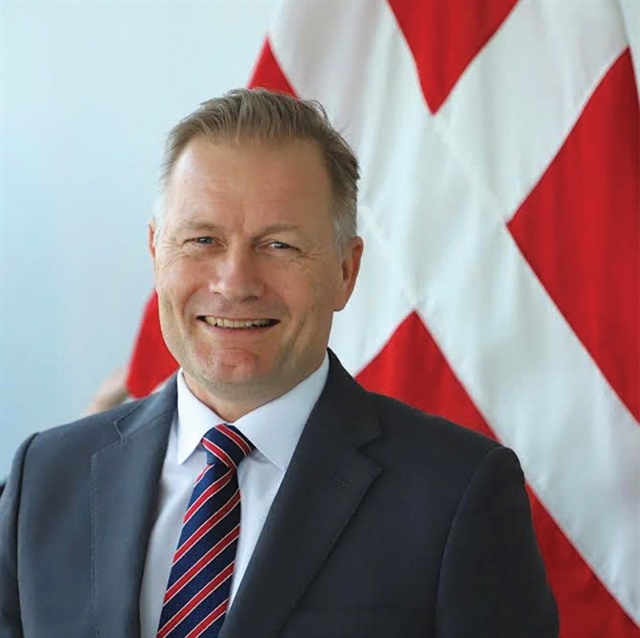
Danish Ambassador Nicolai Prytz |
Danish companies have shown strong interest in the OSW sector in Vietnam – through both direct investment or partnership with local companies. Major players have already presented multi-billion-dollar projects, while others are exploring opportunities across the whole supply chains.
For example, Copenhagen Infrastructure Partners is leading a major OSW proposal in the former Binh Thuan province and has signed an MoU on renewable energy cooperation with PetroVietnam. Vestas, a global leader in turbine manufacturing, is also pursuing both onshore and offshore ventures with local partners. These efforts reflect Denmark’s long-standing commitment to the global green energy transition, underpinned by decades of experience and advanced sustainable technologies.
However, persistent key regulatory challenges have undermined this. A key issue is fragmented coordination across ministries. Despite formal mechanisms, overlapping mandates and policy misalignment in areas such as energy transition, land use, and environmental regulation create bottlenecks. These delays increase costs and uncertainty for private developers navigating Vietnam’s already complex approval landscape.
The absence of a regulatory framework is also deterring Danish developers from scaling up. In particular, the absence of a clear OSW development roadmap with detailed implementation mechanisms is limiting confidence and constraining supply chain expansion.
Infrastructure is another critical concern. Grid capacity, port readiness, and supporting infrastructure remain underdeveloped or inadequate to accommodate large-scale offshore projects.
Recent policy steps are heading in the right direction, bringing Vietnam closer to international standards and demonstrate a commitment to attract long-term clean energy investment.
Still, unresolved issues remain. For instance, the current minimum 80 per cent offtake and 15-year loan repayment terms are often insufficient to meet the financial requirements of large-scale OSW undertakings, which typically depend on 20-year power purchase agreements, especially in an emerging market like Vietnam.
What does the current collaboration potential between Danish and Vietnamese companies look like in this field?
The governments of Denmark and Vietnam have collaborated for more than a decade in the energy sector through the Denmark-Vietnam Energy Partnership, now in its third phase. The partnership focuses on long-term energy planning, energy efficiency, OSW, and integration of renewables into the national grid,
Our cooperation was enhanced in 2023 with the launch of a green strategic partnership between Vietnam and Denmark. This has established a solid bilateral framework to support Vietnam’s development of a climate resilient, low carbon economy while opening avenues for collaboration.
Through our government-to-government partnership, we have supported Vietnam in developing a roadmap for a healthy and expedited OSW industry. The biennial Energy Outlook Report, a key output of the partnership, serves as a valuable resource guiding decision-making and supports Vietnam in shaping its green energy transition.
Recently, we released a port readiness report assessing existing Vietnamese ports’ capacity to support the first OSW projects. Next, we will assist the Electricity Authority of Vietnam in developing administrative procedures for venture selection, approval and monitoring.
At the business-to-business level, Danish companies are well positioned to transfer knowledge and innovative solutions to Vietnam. This will significantly strengthen Vietnamese companies’ capacities and deepen their involvement in the OSW supply chain.
Foreign partners play a crucial role in reducing risks in pilot wind projects, generating investments and employment in Vietnam. Vietnamese enterprises, in particular Petrovietnam, are well-positioned to play a major role in this emerging industry.
However, OSW schemes are complex and risky investments. Experienced partners not only bring capital but also essential expertise to help local partners reduce risks, build local supply chains, negotiate with global suppliers, and transfer knowledge gained from years of experience. Subcontractors without their own capital investment do not have the same incentives.
Power Development Plan VIII (PDP8) and the amended Electricity Law will pave the way for the development of renewable energy. What are the positive aspects, and what needs to be further improved in these documents?
Vietnam is at a pivotal moment in its energy transition. The new Electricity Law and the revised PDP8 mark significant progress, clearly demonstrating the country’s strong commitment to renewable energy. With ambitious renewable targets, PDP8 signals Vietnam’s seriousness in reducing carbon emissions and fulfilling its net-zero targets.
The move towards a market-oriented approach highlighted by more frequent electricity price adjustments and efforts to establish a competitive electricity market is essential to attract more private investment.
The push for direct power purchase agreements further opens the market, allowing large electricity consumers to buy renewable power directly from generators, thereby increasing competition, and accelerating private sector investment in clean energy.
While the overall direction is promising, crucial gaps remain. Foremost is the need for detailed implementation mechanisms. Without sub-law documents directing implementation such as guidelines, procedures and timelines, projects face uncertainty. Investors need clarity and predictability to move forward.
Equally important is a transparent, fair, and consistently applied bidding framework. Such a system is vital to building investor trust and efficiently mobilising private capital for renewable undertakings.
- 10:00 16/07/2025







